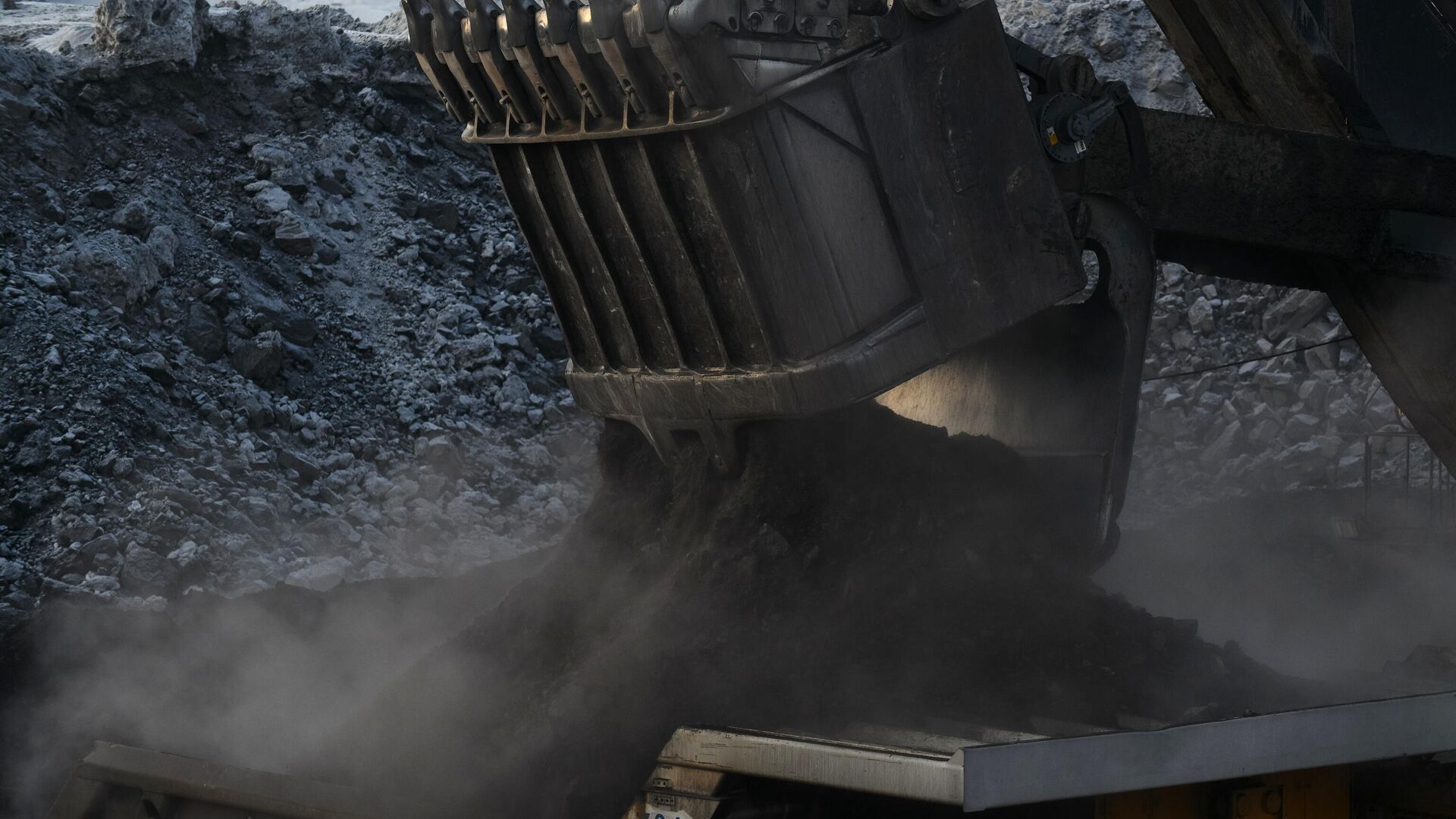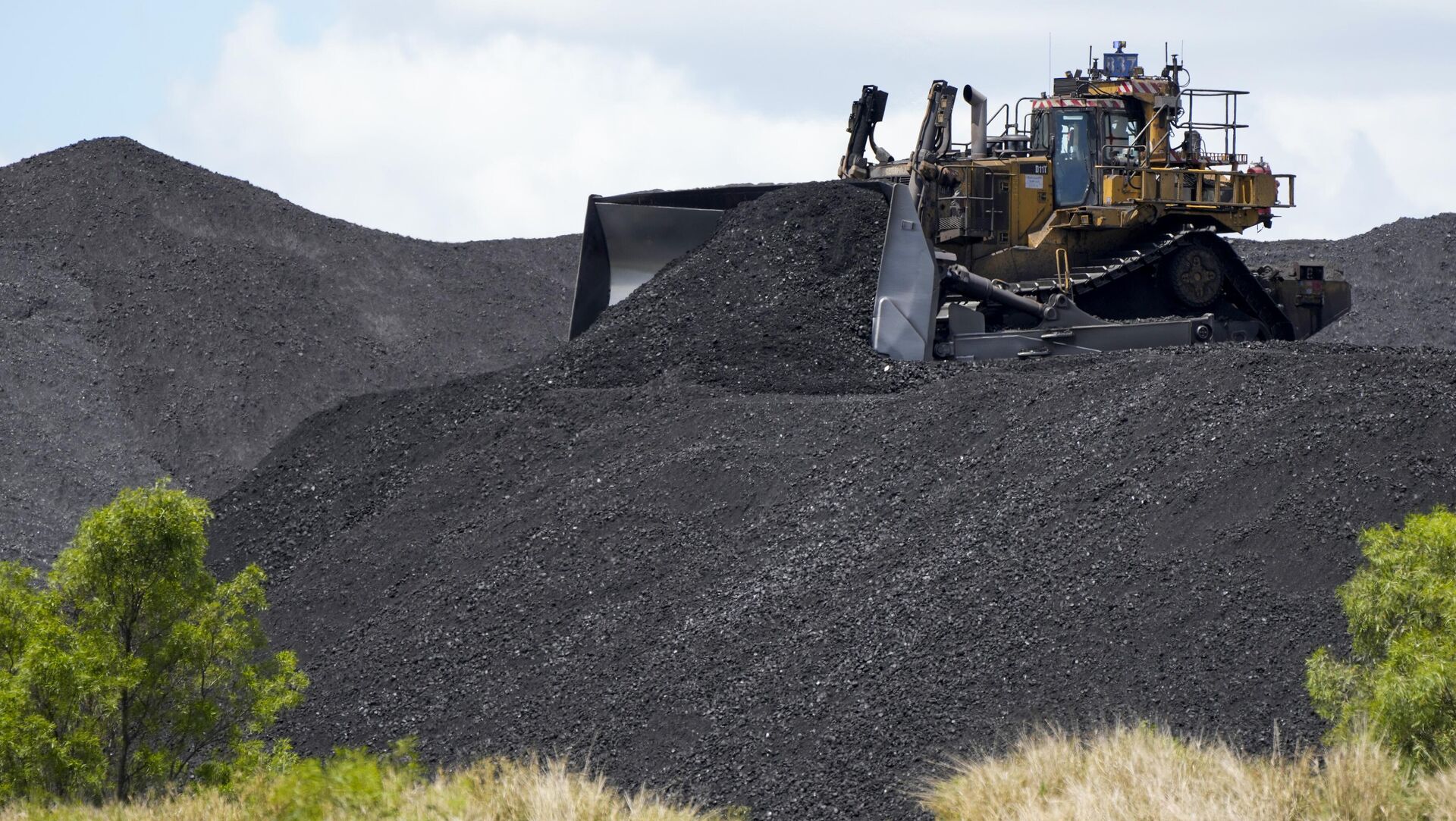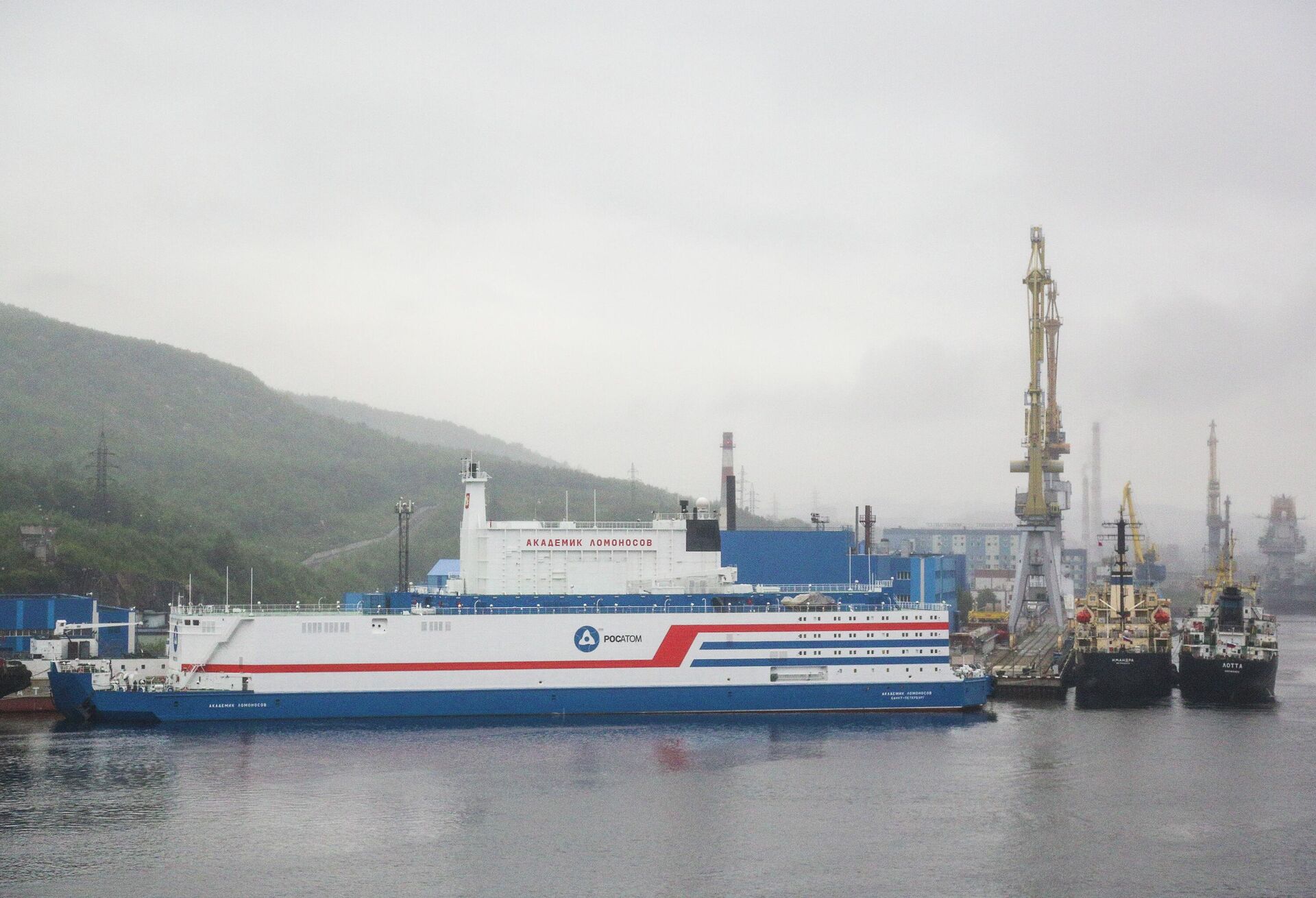https://sputniknews.in/20231206/russia-to-replace-australia-in-coal-exports-to-indian-market-trader-forecasts-5733719.html
Russia to Replace Australia in Coal Exports to Indian Market, Trader Forecasts
Russia to Replace Australia in Coal Exports to Indian Market, Trader Forecasts
Sputnik India
Russia coking coal exports to India are finding increasing acceptability among private and public sector steel-making companies in India, a coal trader has told Sputnik India.
2023-12-06T20:30+0530
2023-12-06T20:30+0530
2023-12-07T11:04+0530
business & economy
india
russia
australia
european union (eu)
new delhi
delhi
coal production
moscow
trade in national currencies
https://cdn1.img.sputniknews.in/img/07e7/01/03/367282_0:160:3073:1888_1920x0_80_0_0_74308a95324e8543945b2009e26a1257.jpg
Russian coking coal exports to India are seeing increasing demand among private and public sector steel-making companies in India, a coal trader has told Sputnik India.He said that there was still room left for increasing export of coking coal from Russia to India amid disruptions in imports from Australia, which has been one of the leading coking coal suppliers to India.He said that Russian coking coal was being bought by major steel-makers such as JSW, Kalyani as well as government-backed SAIL, Rashtriya Ispat.However, Pamnani stated that Russian coal exports to India have risen year-on-year (Y-o-Y) by 45 percent to 23 million MT in January-October 2023 period. He recalled that India bought only around eight million MT of Russian coal in 2019.The export data cited by Pamnani includes Russian exports of four coal varieties--thermal coal (used in power plants), coking coal (used in steel-making), anthracite (high-quality coal) and pulverized coal from injection (PCI).The Indian coal trader stated that India would continue to rely on Russia for import of high-quality anthracite in coming months and years.For thermal coal imports, he said that New Delhi has cheaper options available such as importing it from countries such as South Africa or Indonesia, which are located closer to India.As far as the payment mechanisms are concerned, Pamnani said that most of Russian coal which India had been importing was being paid in three currencies-- UAE Dirham (AED), Chinese yuan renminbi and the Hong Kong dollar.What Led to Surge in Russian Coal Imports in India?Pamnani recalled that Europe used to be Russia's biggest coal market before the start of the special military operation last February."Since the Ukraine conflict, Europe has stopped buying coal from Russia. So, Russia was looking for a new market for its coal while Europe was on the lookout for a new supplier," he added.Pamnani explained that the EU turned to other coal-producing nations such as Canada, the US, Colombia and South Africa among others, causing a global volatility in coal markets and increasing global prices.He said that Russia, on the other hand, started offering discounts to new buyers such as India and China.The trader said that Russia isn’t able to offer the same discounts anymore as the coal market volatility subsided and prices stabilised.Challenges for Russia-India Coal TradePamnani said that Russian coal exporters are finding it increasingly difficult to match prices of other suppliers because of a significant increase in freight charges due to attacks on merchant vessels in the Gulf of Aden."This is a major challenge facing Russian companies. They will have to route their coal exports from western ports through the Cape of Good Hope. The Russian suppliers are finding it increasingly difficult to match the price of coal exports from South Africa or Indonesia, which are closer to India," concluded Pamnani.
https://sputniknews.in/20231205/relationship-with-russia-has-saved-india-at-times-jaishankar--5706379.html
india
russia
australia
new delhi
delhi
moscow
canberra
Sputnik India
feedback.hindi@sputniknews.com
+74956456601
MIA „Rossiya Segodnya“
2023
Dhairya Maheshwari
https://cdn1.img.sputniknews.in/img/07e6/0c/13/138962_0:0:641:640_100x100_80_0_0_2cb44360dbcdf6d84bf4b299cd045917.jpg
Dhairya Maheshwari
https://cdn1.img.sputniknews.in/img/07e6/0c/13/138962_0:0:641:640_100x100_80_0_0_2cb44360dbcdf6d84bf4b299cd045917.jpg
News
en_IN
Sputnik India
feedback.hindi@sputniknews.com
+74956456601
MIA „Rossiya Segodnya“
Sputnik India
feedback.hindi@sputniknews.com
+74956456601
MIA „Rossiya Segodnya“
Dhairya Maheshwari
https://cdn1.img.sputniknews.in/img/07e6/0c/13/138962_0:0:641:640_100x100_80_0_0_2cb44360dbcdf6d84bf4b299cd045917.jpg
coal price today, coal price chart, india coal production, india coal price, india coal consumption, india coal imports, australian coal exports to india, russian coal exports, russian coal exports to india, russian coal exports to china, india russia trade, india russia relations
coal price today, coal price chart, india coal production, india coal price, india coal consumption, india coal imports, australian coal exports to india, russian coal exports, russian coal exports to india, russian coal exports to china, india russia trade, india russia relations
Russia to Replace Australia in Coal Exports to Indian Market, Trader Forecasts
20:30 06.12.2023 (Updated: 11:04 07.12.2023) Moscow has said it hopes to increase its coal supplies to India by 400 percent this year, as compared to 2022.
Russian coking coal exports to India are seeing increasing demand among private and public sector steel-making companies in India, a coal trader has told Sputnik India.
"Its acceptability has been increasing in the Indian steel-making sector. It will increase in coming days and replace the Australian coking coal supplies," forecast Vasudev Pamnani, the Director of Lavi Coal Info.
He said that there was still room left for increasing export of coking coal from Russia to India amid disruptions in imports from Australia, which has been one of the leading
coking coal suppliers to India.
"The Australian price is too high and Russia is pushing coking coal supplies to the Indian market," the trader said, noting that Australian coking coal was selling at a high of $350 per Metric Tonne (MT) in recent weeks.
He said that Russian coking coal was being bought by major steel-makers such as JSW, Kalyani as well as government-backed SAIL, Rashtriya Ispat.
India is the world's second-biggest steel manufacturer. In 2022, Australia exported nearly 70 million tonnes of coal to India, accounting for around half of India's overall imports.
However, Pamnani stated that Russian coal exports to India have risen year-on-year (Y-o-Y) by 45 percent to 23 million MT in January-October 2023 period. He recalled that India bought only around eight million MT of Russian coal in 2019.
The export data cited by Pamnani includes Russian exports of four coal varieties--thermal coal (used in
power plants), coking coal (used in steel-making), anthracite (high-quality coal) and pulverized coal from injection (PCI).
The Indian coal trader stated that India would continue to rely on Russia for import of high-quality anthracite in coming months and years.
"India has no other option as far as anthracite imports are concerned. No other country offers such high-grade anthracite as Russia does. So, whatever may be the price, India will have to buy anthracite from Russia," he predicted.
For
thermal coal imports, he said that New Delhi has cheaper options available such as importing it from countries such as South Africa or Indonesia, which are located closer to India.
As far as the
payment mechanisms are concerned, Pamnani said that most of Russian coal which India had been importing was being paid in three currencies-- UAE Dirham (AED), Chinese yuan renminbi and the Hong Kong dollar.
What Led to Surge in Russian Coal Imports in India?
Pamnani recalled that Europe used to be Russia's biggest coal market before the start of the
special military operation last February.
"Most of the coal was exported through western ports such as Ust-Luga and Murmansk. On Russia's eastern side, ports like Vostochny were supplying coal to China and South Korea," he said.
"Since the Ukraine conflict, Europe has stopped buying coal from Russia. So, Russia was looking for a new market for its coal while Europe was on the lookout for a new supplier," he added.
Pamnani explained that the EU turned to other coal-producing nations such as Canada, the US, Colombia and South Africa among others, causing a
global volatility in coal markets and increasing global prices.
He said that Russia, on the other hand,
started offering discounts to new buyers such as India and China.
Pamnani noted that discounts being offered by Russia were to the tune of 30-40 percent as compared to other exporters.
The trader said that Russia isn’t able to offer the same discounts anymore as the coal market volatility subsided and prices stabilised.
"Currently, Russian coal exporters are just matching the price as other sources of imports such as Australia are offering the same price to India," the expert said.
Challenges for Russia-India Coal Trade
Pamnani said that Russian coal exporters are finding it increasingly difficult to match prices of other suppliers because of a significant increase in freight charges due to attacks on
merchant vessels in the Gulf of Aden.
"Many merchant vessels are now avoiding the Suez Canal and routing through the Cape of Good Hope at South Africa's southern tip. The freight charges have shot up by one-and-a-half times," he revealed, adding that marine insurance costs have also led to the price burden for Russian exporters.
"This is a major challenge facing
Russian companies. They will have to route their coal exports from western ports through the Cape of Good Hope. The Russian suppliers are finding it increasingly difficult to match the price of coal exports from South Africa or Indonesia, which are closer to India," concluded Pamnani.





